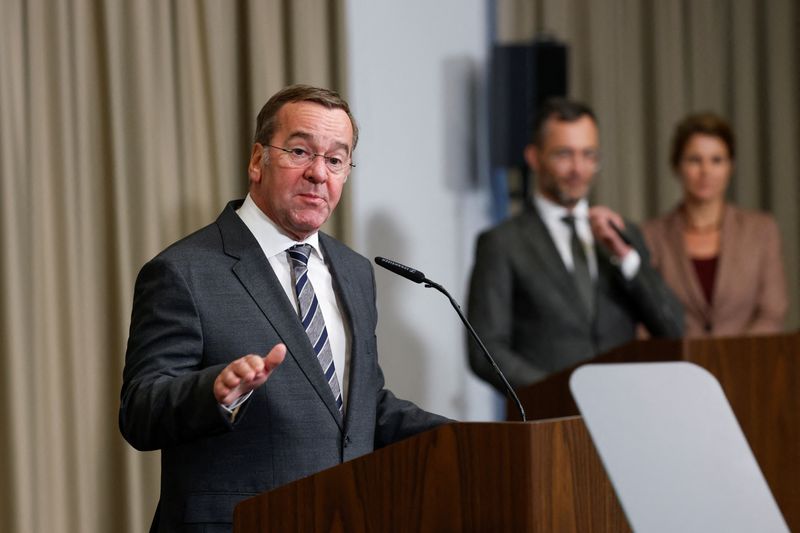Investing.com’s stocks of the week
BERLIN (Reuters) - Ahead of Donald Trump's inauguration as U.S. president, German Defence Minister Boris Pistorius said on Thursday an allies' group aimed at speeding arms to Ukraine was best kept under U.S. leadership but would adapt if Washington changes its involvement.
"And if those in the United States now decide not to maintain this format any longer, then we will have to make our own decisions," said Pistorius at the Ukraine Defense Contact Group (UDCG)
The group is sometimes referred to as the Ramstein Group after the U.S. military base in Ramstein, Germany where the participating countries meet.
Pistorius added that it was too early to speculate on what could happen to the group's format after Trump takes office on Jan. 20.
U.S. Defense Secretary Lloyd Austin, who launched the UDCG in 2022, called on Ukraine's allies to continue to support Kyiv against Russia's invasion but declined to speculate on whether Trump would convene UDCG meetings in the future.
"That is a decision that's for the next administration to make. And I won't speculate on which direction they would go in," Austin told reporters after hosting the talks at Ramstein Air Base.
Washington has committed more than $63.5 billion in security assistance to Ukraine since Russia's invasion and announced an additional $500 million in aid on Thursday, including air defense missiles, air-to-ground munitions and support equipment for F-16 fighter jets.
Trump's return to the White House has sparked speculation about a potential push to end Moscow's invasion but also fears in Kyiv that a quick peace could come at a high price for Ukraine.
Advisers to Trump have floated proposals to end the war that would effectively cede large parts of the country to Russia for the foreseeable future.
Pistorius said that he was "astonished" by Trump's refusal to rule out using military or economic action to pursue acquisition of Greenland but was optimistic the president-elect's comments would not influence modern U.S. policy.
"I don't know exactly what he's aiming for, but allies and alliances are set up to stay that way and otherwise they'd just be loose alliances and not allies," said Pistorius.
Pistorius said Germany would be providing further guided missiles to Ukraine for the IRIS-T systems, initially intended for the German army, at short notice, and would stick to its schedule for delivering the systems it promised.
